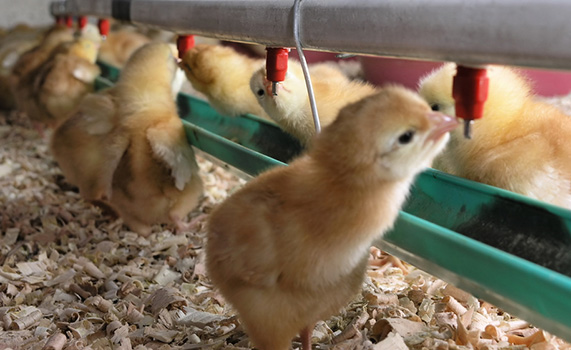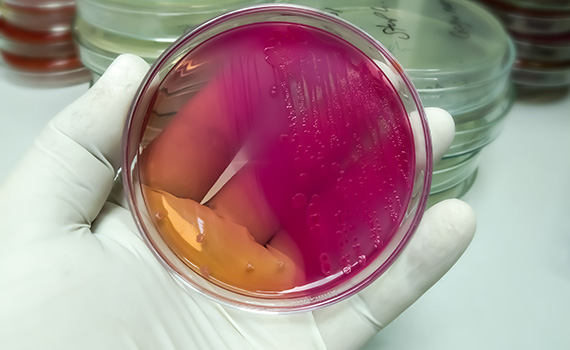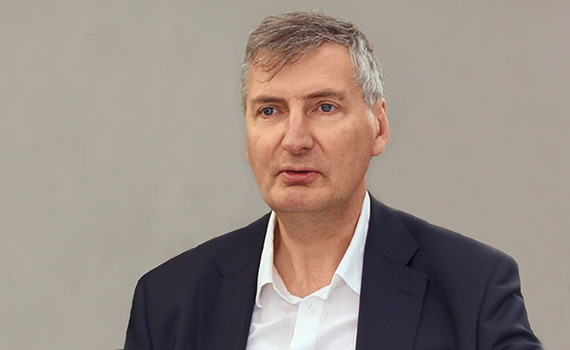Modified-live E. coli vaccine found safe, effective for water administration to chickens

A modified-live vaccine indicated for active immunization against infections caused by Escherichia coli 078 is safe and also effective when administered in drinking water, according to results of a study.
E. coli infection often occurs secondary to a primary viral or bacterial infection or as a result of poor husbandry practices, says Tura Bru, DVM, a senior scientist with Zoetis.
Colibacillosis often manifests as septicemia and can result in high morbidity, mortality and carcass condemnation, which makes it an economically important disease in the poultry industry, she says.
A modified-live vaccine already in use throughout the US and Europe is Poulvac® E. coli. The vaccine contains an 078 strain of the pathogen, but the vaccine’s aroA gene has been deleted to prevent it from causing disease. For the purpose of European registration, investigators wanted to test the vaccine for safety and efficacy when administered in water to 5-day-old chicks.
Safety study
In their safety tests,[1] investigators administered an overdose of the vaccine to 70 day-old specific-pathogen-free (SPF) chickens. Because drinking water administration is unlikely to result in an exact dose per animal, the investigators administered the vaccine to each chicken by oral gavage.
After 4 hours, they housed 35 day-old SPF unvaccinated chickens with the vaccinated group to evaluate vaccine spread and then observed the chickens for signs of clinical disease. In addition, they examined 10 vaccinated and five unvaccinated chickens for colibacillosis lesions and the presence of the vaccine. They also took samples from the floor, water and feed.
No clinical signs or lesions were found after vaccination, nor were bacteria isolated in tissues from vaccinated birds, a finding that indicates the vaccine clears. The findings also indicated that the vaccine is shed in feces only early after vaccination since it could not be detected in the environment at 2 and 3 weeks after administration, says Bru, who presented her findings at the 2015 World Veterinary Poultry Association congress.
Vaccine was also detected from nasal swabs, although Bru says the presence of the vaccine in the nasal cavity probably did not originate in the respiratory tract but was contracted when birds pecked at litter, feed or the cloaca of other vaccinated birds.
Efficacy studies
To determine the efficacy of Poulvac E. coli administered in water, Bru and colleagues conducted onset of immunity and duration of immunity studies with 339 SPF chickens.[2],[3]
Half of the birds were vaccinated at 5 days of age, and the remainder were not vaccinated and served as controls. The investigators used different types of drinkers to mimic field conditions. They commingled the two groups and then challenged them with a virulent E. coli 078 strain either at 13, 56 or 84 days (12 weeks) after vaccination.
No clinical signs were observed in the vaccinated group after challenge. Among controls, investigators found that 6.7% were depressed after challenge at 13 days. After challenge on day 56, there were no clinical signs, but after challenge on day 84, 28% of control birds were depressed, all had severe colibacillosis lesions and 10% died or needed to be humanely euthanized.
In addition, the percentage of unvaccinated chickens with colibacillosis lesions was statistically, significantly higher than it was in vaccinated chickens (Table 1), Bru notes.
Table 1. Percentage of chickens with colibacillosis lesions after challenge
|
|
Day 13 challenge | Day 56 challenge | Day 84 challenge |
|
Vaccinated |
29% |
35% |
30% |
|
Unvaccinated |
54% |
79% |
79% |
| P values | P = 0.0225 | P < 0.05 |
P < 0.05 |
The results demonstrate that Poulvac E. coli is safe because no colibacillosis lesions were observed after vaccination; the vaccine also effectively reduced colibacillosis lesions and mortality when administered in drinking water, Bru says.
The studies further demonstrate the vaccine’s onset of immunity is 13 days after vaccination, and the duration of immunity is at least 84 days or 12 weeks, she adds.
As a result of the studies, Poulvac E. coli was approved in the EU for administration via water as well as by coarse spray.
This article contains information on veterinary products based on international registration dossiers. The registered indications as well as safety and efficacy assessments for specific products may vary with local regulations and approvals. Always refer to the product label specific to your market for usage guidelines. Product and trademark registration may vary by country. Contact your Zoetis representataive for availability.
[1] Data on file, Study Report No. B913N-ES-13-226, Zoetis LLC.
[2] Data on file, Study Report No. B815R-ES-13-239, Zoetis LLC.
[3] Data on file, Study Report No. B814R-NL-13-318, Zoetis LLC.
Posted on January 15, 2017
 We’re glad you’re enjoying
We’re glad you’re enjoying










